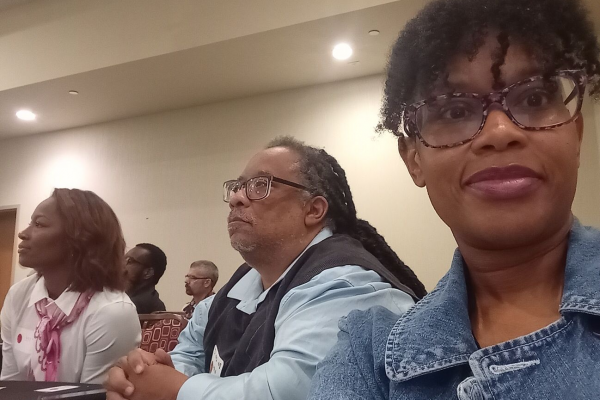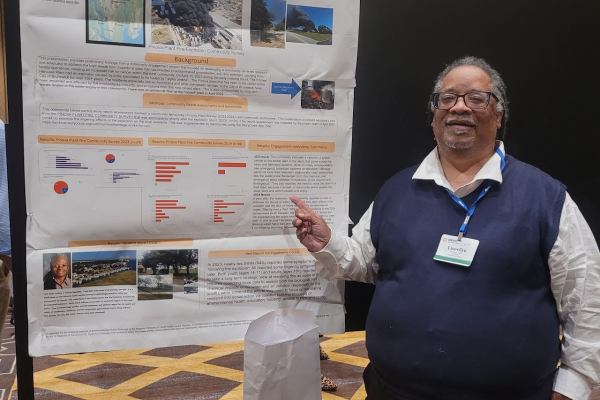Brunswick’s Fight for Clean Water: Youth-Led Change in Coastal Georgia

Center for Children’s Health Assessment, Research Translation, and Combating Environmental Risk (CHARTER)
Emory University and University of Georgia

Brunswick, Georgia—called “the Flint Michigan of Georgia” by some—faces severe environmental challenges. The community, located in Glynn County, is home to four of the state’s 16 Superfund sites, where toxic waste and chemicals have contaminated groundwater, soil, and sediment. These chemicals are dramatically increasing residents’ risk of cancer and other health issues. In April 2023, the landscape was made more hazardous by a fire and explosion at the PINOVA Plastic Resin Factory, which released airborne contaminants into the air. The explosion has left residents increasingly worried about the potential long-term impacts of local environmental health hazards.
In light of these challenges, Dr. Llewellyn Cornelius from the University of Georgia School of Social Work secured CHARTER pilot funding to engage local youth in assessing community health and well-being. Partnering with the UGA Marine Extension and Heritage Works, Dr. Cornelius trained community members and youth to conduct brief, 15–20 minute interviews on issues such as the PINOVA explosion, water quality, and other environmental concerns. The team held 29 conversations across libraries, churches, historical sites, and community events. They gathered 177 anonymous “needs assessments” as well, which revealed pressing worries about water toxins and fears of workplace retaliation for bringing attention to these matters. By listening directly to residents, this effort helped uncover issues that may have otherwise been overlooked. It strengthened community health and civic engagement, and empowered local youth to seek solutions to make Brunswick a safer, healthier place.
Moving forward with funding and new connections
Building on this groundwork, Dr. Cornelius applied for a CHARTER Translational Interdisciplinary SEED Grant in 2025 to further analyze the collected data and transform findings into accessible advocacy materials. Plans include training youth as Environmental Resilience Ambassadors to co-facilitate community discussions and create a shared vision for long-term environmental improvements. These town halls will give residents and young people a voice in shaping policies that support their health and well-being. Additionally, Dr. Cornelius has connected with environmental health consultant FreAsia Young to potentially replicate the needs assessment model in Rockdale County (GA) after a chemical explosion there in October 2024. By equipping communities with the knowledge and leadership to identify and address environmental challenges, this project lays the groundwork for lasting, community-driven change.

“The conferences provided our team with multiple opportunities to foster the connection between community-driven environmental justice needs and the design of timely interventions to address these issues.”– Dr. Llewellyn Cornelius.